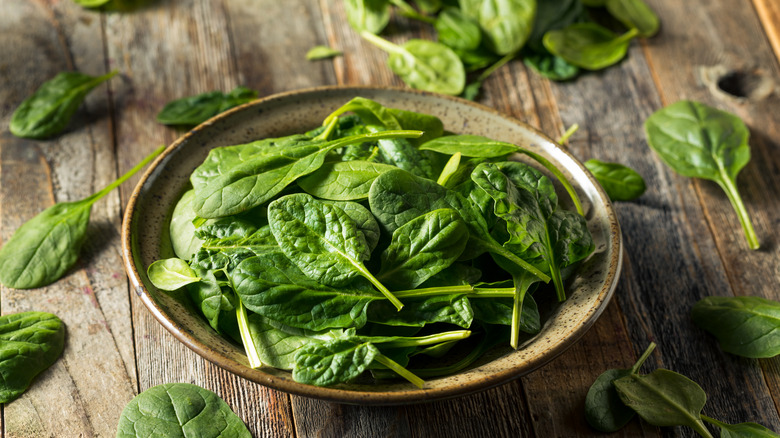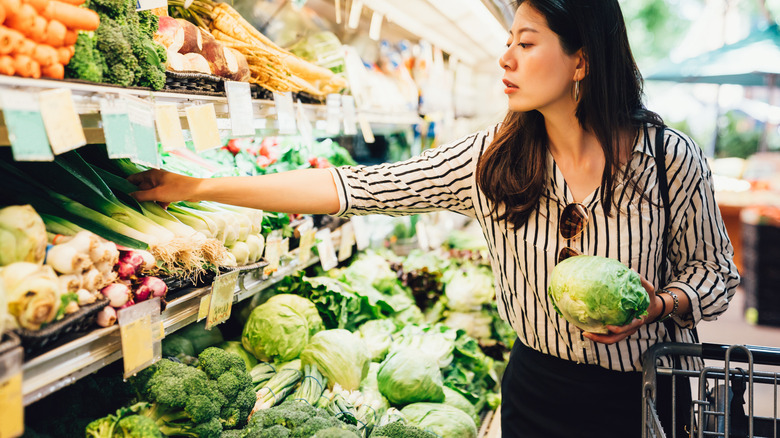What Eating Too Many Leafy Greens Does To Your Body
Eating vegetables is a no brainer. Through the years we have been exposed to a ton of information detailing the many benefits of eating veggies, specifically leafy greens, and more people than ever before are following a plant-based diet (via The Beet). Data shows that the Baby Boomers and Gen-Xers are choosing a more plant-based diet for health reasons, while the Millennial and Gen-Z generations are choosing plant-based foods for more environmental and ethical reasons (via The Beet).
Eating more leafy greens like spinach, microgreens, kale, cabbage, romaine, and bok choy has been shown to reduce the risk of chronic medical conditions including obesity, heart disease, hypertension, and cognitive decline (via Healthline). These greens contain essential vitamins, minerals, and antioxidants, and you can enjoy them alone, or incorporate them in smoothies, salads, soups, and in a variety of other dishes.
Keith-Thomas Ayoob, EdD, RD, FAND, tells Eat This, Not That!, "Most people really benefit from eating more leafy greens. They're nutrition powerhouses, loaded with not only vitamins and minerals like vitamins A, C, K, and many B-vitamins like folic acid, but they're also high in fiber." As nutritional and healthy greens are, like anything else, too much of a good thing might become a bad thing.
You might experience these symptoms when eating leafy greens
Most dark leafy greens are rich in vitamin K. Trista Best, MPH, RD, LDN, tells Eat This, Not That!, "Vitamin K, which is found in abundance in leafy greens, is fat-soluble. This means it can become toxic when too much is consumed or supplemented." While a vitamin K deficiency can cause bleeding issues, a vitamin K overdose can cause toxicity in the body as it also acts as a blood thickener, explains Best.
Certified diabetes care and education specialist Diana Gariglio-Clelland, RD, CDCES, shares with Eat This, Not That! that people on blood thinner medications need to be especially careful about their vitamin K intake, as they are prone to bleeding or clotting issues.
The Daily Meal reports that gastrointestinal symptoms are another uncomfortable effect of eating too many leafy greens. Gas, bloating, and constipation may occur when you eat more fiber than your body can handle, and some leafy greens, like kale and collard greens, do contain high amounts (via Medical News Today).
Chances are, eating a decent amount of leafy greens is more beneficial than harmful. However, if you have a medical condition or begin to experience gastrointestinal distress, make sure you discuss your diet with your healthcare provider.


